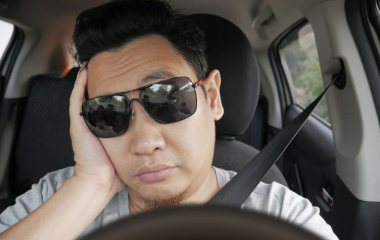The disturbing trend of people driving drowsy continues, according to a new report by The Centers for Disease Control and Prevention (CDC).
The report is based on the largest survey ever to examine the topic of drowsy driving. The CDC found that 4.2 percent of 147,076 respondents reported having fallen asleep while driving at least one time during the previous 30 days. Men were more likely to report drowsy driving than women. Statistical analysis found that sleeping for six hours or less per night was related independently to drowsy driving. Self-reported snoring also was an independent risk factor.
“Drowsy driving is a serious risk to personal health and public safety, and snoring is an important warning sign that should not be ignored,” said AASM President Dr. Sam Fleishman. “Loud and frequent snoring is a common symptom of obstructive sleep apnea, a sleep illness that often causes excessive daytime sleepiness.”
The CDC analysis involved data from a set of questions about insufficient sleep. The survey was part of the Behavioral Risk Factor Surveillance System (BRFSS) during 2009–2010. U.S. adults in 19 states and the District of Columbia were surveyed.
The CDC encouraged drivers to seek treatment for sleep disorders. The report also noted that the actual rate of drowsy driving is likely to be higher. Drivers often are unaware that they have fallen asleep behind the wheel. The survey also excluded teens, who have a high risk of drowsy driving.
The public health impact of drowsy driving is clear: The AAA Foundation for Traffic Safety estimates that more than 16 percent of fatal crashes involve a drowsy driver.
The AASM released a free online presentation about drowsy driving. It describes the signs, causes, and effects of driver fatigue. It also suggests some strategies to manage it. The SAFE-D: Sleep, Alertness and Fatigue Education for Drivers presentation also is on YouTube and Vimeo to share or embed.
The American Academy of Sleep Medicine considers sleep disorders an illness that has reached epidemic proportions. Board-certified sleep medicine physicians in an AASM-accredited sleep center provide effective treatment. AASM encourages patients to talk to their doctors about sleep problems or visit our searchable directory of sleep centers.





